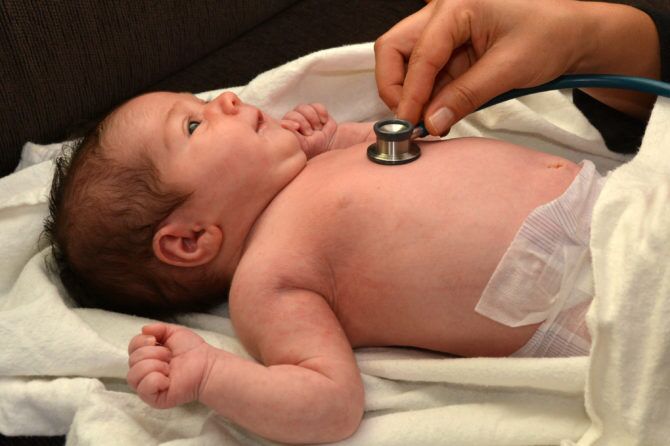
National Alcohol & Drug-Related Birth Defects Awareness Week
Alcohol use during pregnancy is the leading preventable cause of birth defects that occur in 1 in every 33 infants born in the United States each year.
These defects can be minor or severe and can occur in any pregnancy. However, there is no safe level of alcohol use during pregnancy, and with National Alcohol & Drug-Related Birth Defects Awareness Week right around the corner (May 6-12), it is a good time to shed light on the dangers of alcohol and drug use during pregnancy and their effects on the unborn.
One in every 100 children born across the U.S. is affected by prenatal exposure to drugs or alcohol, which can even include eating foods or taking medications that contain alcohol. This week is dedicated to spreading the message that alcohol, drugs, and pregnancy simply do not mix, and educating the public – specifically, women in the childbearing age range of 15 to 45 years – that the chances of having a healthier baby are much higher when you make the right decisions for both you and your family.
While the term “birth defect” may carry a negative connotation, the term in no way downplays the many abilities and talents that individuals born with these challenges possess. It is important that we have a dialogue about the risks of consuming certain drugs while pregnant, and what we can do to stop this epidemic.
It can be dangerous for a pregnant woman to stop taking prescription drugs if she has a medical condition, however. Every woman must look out for her own health first and keep in mind that what she puts in her body will affect the growth and well-being of her unborn baby.
Here at Windward Way Recovery, we are committed to helping newly pregnant women seek sobriety before childbirth. We understand that withdrawal and detox efforts during pregnancy require special care, and we are here to offer you the care you need. Reach out today.
What causes birth defects?
- Drinking alcohol. Even a very small amount – even one glass of wine – can have negative effects on a developing fetus. Using alcohol can lead to fetal alcohol syndrome (FAS), which involves intellectual or developmental disabilities, behavioral problems, and physical challenges. Up to 40,000 newborns are affected by FAS each year, while 1 in 100 babies have fetal alcohol spectrum disorders (FASD), which is nearly the same rate as Autism.
- Smoking cigarettes. Smoking greatly increases the risk of sudden infant death syndrome (SIDS) as well as health problems for developing babies, such as preterm birth, low birth weight, and birth defects of the mouth and lip. E-cigarettes and any alternate forms of nicotine use are not safe to use during pregnancy, as nicotine can damage a developing baby’s brain and lungs. However, 20% of pregnant women in the U.S. smoke.
- Using illicit drugs. Drugs like cocaine affect an unborn child’s stress response system, while other drugs can lead to behavioral problems, pregnancy loss, and stillbirth.
- Exposure to certain medications. Thalidomide, for example, which is used as a treatment of certain cancers and serious complications of leprosy, was once considered a treatment for morning sickness before it was discovered to cause birth defects. Women who are pregnant or who might become pregnant should discuss all prescription and over-the-counter medications with their primary health care provider.
- Genetics, chromosomal problems, infections, and environmental factors.
What are the types of birth defects?
Birth defects are typically classified as structural or developmental.
Structural defects include:
- Heart defects
- Low birth weight
- Cleft lip or palate
- Small head circumference
- Spina bifida, a neural tube defect in which the spine and spinal cord don’t form properly
- Clubfoot
Developmental defects include:
- Nervous system problems, intellectual disabilities, speech or language difficulties, and behavioral disorders, such as down syndrome
- Sensory problems such as blindness and deafness
- Metabolic disorders such as phenylketonuria and hypothyroidism that involve problems with certain chemical reactions in the body.
- Degenerative disorders like muscular dystrophy that can lead to problems of the nervous system and adrenal glands
- Sickle cell disease that blocks blood flow and causes pain from a shortage of healthy red blood cells
- Cystic fibrosis that affects the lungs and digestive system
- Poor coordination
- Poor concentration
Symptoms of fetal alcohol syndrome (FAS) include distinctive facial features, learning disabilities, bone, and joint deformities, and hyperactivity.
Some birth defects affect can lead to both structural and functional problems, affecting different parts or processes in the body.
How can a newly pregnant woman seek help to sobriety before childbirth?
It is vital that your baby has all the tools necessary to live a happy and fruitful life. It isn’t fair for someone to suffer and pay the price because of poor decisions by their mother.
National Alcohol & Drug-Related Birth Defects Week is about acknowledging the dangers of certain decisions, and how they affect much more than the individual acting out those choices.
If you are planning on getting pregnant and you use drugs or alcohol, the time to find help – for both you and your unborn child – is now.
Here at Windward Way, we are committed to bringing mothers closer to their best selves and be a guiding light on the path to recovery. Our individualized treatment is designed with you in mind, and our compassion team is here to help you reclaim control over your life. Give us a call at (855) 491-7694.
Leave a reply